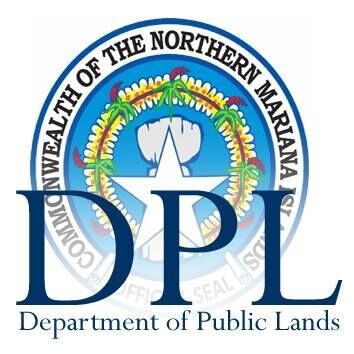
THE Department of Public Lands on Tuesday released public outreach information to help clarify the land compensation process for individuals whose private properties were acquired by the Commonwealth for public use. This effort is part of DPL’s ongoing initiative to promote transparency and awareness of landowner rights under Article XIII, Section 2 of the CNMI Constitution, which guarantees the right to just compensation. DPL’s outreach aims to inform the public of the key steps involved in processing land claims, the availability of monetary or land exchange options, and the procedures for administrative hearings when disputes arise.
“We recognize that the acquisition of private land for public purposes can significantly affect individuals and families,” stated Director of Land Claims Terry Guerrero. “Our goal is to ensure that the public is informed of their rights and the available remedies, and that the process remains clear, fair, and consistent with applicable laws and regulations.”
When the Commonwealth acquires private property for a public purpose — such as roads, parks, or environmentally sensitive areas — the acquisition must follow established laws. The Department of Public Lands, through its Land Claims Division, oversees the compensation process. Agencies requesting land must submit key documents, including proof of public purpose, clear title, survey maps, evidence of when the government first entered the land, and the owner’s acknowledgment of compensation preference. This ensures each claim is properly documented and processed in accordance with legal requirements.
Once a land compensation claim is submitted, DPL’s Land Claims Division reviews, investigates, and verifies its validity. An independent appraiser is engaged to determine the fair market value of the property. Based on this, DPL issues a written offer to the landowner, which includes the appraised value and supporting documentation. The owner has 60 days to respond; if no response is received, the offer is considered rejected. Should the owner disagree, they may submit their own valuation within 30 days for reconsideration. DPL may revise its offer if the new evidence justifies a change in the valuation.
Landowners who dispute a compensation offer have the right to request an administrative hearing to present their case. If a claim has issues such as an unclear title or legal encumbrances, processing may be paused until the claimant resolves them. Once an agreement is reached, both parties enter into a formal settlement, subject to legal review. Claims are processed in priority order — starting with rights-of-way, followed by ponding basins, then wetlands. While DPL facilitates the process, it cannot pay monetary compensation without legislative appropriation. In the meantime, eligible landowners may opt for a land exchange, particularly if their property is valued at $5,000 or more.
“Although details can be found in our regulations via our website dpl.gov.mp or the courts cnmilaw.org/, under Administrative Code Title 145-40 or 145-50, the regs can be intimidating,” stated Wence Aquino, land claims investigator III. “Our office is always open, and we are here to assist you if you need further inquiries or clarification.”











